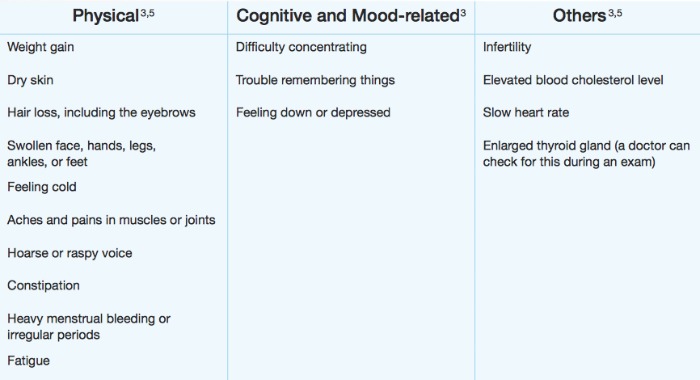 I’ve always imagined Sofia Vergara as perfectly perfect. I imagined her having perfect hair, the perfect body, the perfect boyfriend. I knew she had a former (perfect) Miami life but had moved on in her perfect way, rising to the top to land the perfect television role on Modern Family. Her accent made her the perfect Latina starlet. So, when I was invited to a media luncheon with Her Perfectness, I was surprised to know that the reason I was invited was because she wanted to share her UN-perfectness with me. It didn’t seem possible.
I’ve always imagined Sofia Vergara as perfectly perfect. I imagined her having perfect hair, the perfect body, the perfect boyfriend. I knew she had a former (perfect) Miami life but had moved on in her perfect way, rising to the top to land the perfect television role on Modern Family. Her accent made her the perfect Latina starlet. So, when I was invited to a media luncheon with Her Perfectness, I was surprised to know that the reason I was invited was because she wanted to share her UN-perfectness with me. It didn’t seem possible.
I soon learned that at only 28 years old, Sofia Vergara was told that she had been diagnosed with Thyroid cancer. Cancer? Perfect people don’t get cancer, do they?
At the time, she was not yet People magazine’s “Most Influential Latina.” She was a rising media figure and a single mother with a young son. But, as she described, she faced her diagnosis head on. Naturally, she was scared. But she educated herself about her options. Because she had done her homework, Sofia was prepared for her new life as a hypothyroidism patient.
In retrospect, today, she says, “I believe that everything happens for some reason. My health issues changed my way of thinking and I’ve been more careful and have made different choices because of all this.”
Sofia Vergara Hypothyroidism and #FollowTheScript
Sofia’s challenge made her stronger, wiser, and gave her the courage to move forward. She handles her hypothyroidism with Synthroid. A daily Synthroid pill taken on an empty stomach, keeps her thyroid levels in check. She keeps a close relationship with her doctors who monitor her thyroid levels through regular blood testing. She told us how she hates to exercise, but she has accepted the fact that it’s necessary as well as healthy eating.
Sofia has teamed up with AbbVie to lead an initiative called Follow the Script, which encourages people to take an active role in their health. The campaign aims to educate individuals with hypothyroidism about the importance of diagnosis, treatment and taking medication as prescribed by their doctor. Sofia is known to ad-lib and go off-script in front of the camera, but when it comes to her health, she always follows what her doctor prescribes.
Hypothyroidism affects millions of individuals in the U.S. of every age, sex, race, and level of wealth and education. Among thyroid diseases, hypothyroidism is especially prevalent among women. Hypothyroidism is thought to be highly under diagnosed in Latinas.
In this short video taken at the luncheon, Sofia uses humor to talk about how she partners with her doctors to keep her thyroid levels in check.
What is Hypothyroidism?
Hypothyroidism, an underactive thyroid gland, is a common condition where the thyroid gland can’t produce enough thyroid hormone to keep the body functioning properly.1
The thyroid gland is a butterfly-shaped endocrine gland located in the lower front of the neck. Its function is to produce thyroid hormones that help the body use energy, stay warm and keep the brain, heart, muscles, and other organs working as they should.1
Thyroid conditions affect millions of individuals in the U.S.2 and approximately one out of eight women will develop a thyroid condition in her lifetime.3
Causes
Hypothyroidism may be caused by a number of factors. Among the most common are:
▪ Autoimmune Disease: Autoimmune disease, the most common cause of hypothyroidism, occurs when the immune system that protects the body from invading infections mistakes thyroid gland cells and other enzymes for invaders and attacks them. As a result, there aren’t enough thyroid cells and enzymes left to produce thyroid hormone.1
▪ Thyroid Surgery: Some individuals may need to have a portion or all of their thyroid gland removed, due to thyroid cancer, thyroid nodules or other conditions.1 Removing all or a large portion of the thyroid gland can halt or diminish hormone production.4
▪ Radiation Therapy: Radiation used to treat cancers of the head and neck can affect the thyroid gland and may lead to hypothyroidism.4
Symptoms
The signs and symptoms of hypothyroidism can vary. Some people with hypothyroidism experience only a few mild symptoms, or sometimes, no symptoms at all. While this is not a comprehensive list, some common symptoms include:
Diagnosis
A diagnosis of hypothyroidism depends on a variety of factors including symptoms, medical/family history, physical exams and blood tests. The most important and sensitive test for hypothyroidism is the thyroid-stimulating hormone (TSH) test.1 The TSH test measures how much of the thyroid hormone thyroxine (T4) the thyroid gland is being asked to make.1
Treatment & Follow-up
Hypothyroidism is treated by replacing the amount of hormone the thyroid can no longer produce. This is usually done with an oral tablet or pill of the thyroid hormone thyroxine (T4 or levothyroxine). Individuals should have their TSH checked every six to 10 weeks after a thyroxine dose change.1 Once an individual with hypothyroidism is on the dose of medicine that’s right for them, their physician may change the frequency of their TSH tests to about once a year, depending on the patient’s individual situation.1
Hypothyroidism can’t be cured, but in most patients, hypothyroidism can be managed.
SYNTHROID® (levothyroxine sodium tablets, USP) is a prescription, man-made thyroid hormone that is used to treat a condition called hypothyroidism, except in cases of temporary hypothyroidism, which is usually associated with an inflammation of the thyroid gland (thyroiditis). It is meant to replace a hormone that is usually made by your thyroid gland. Generally, thyroid replacement treatment is to be taken for life.
Important Safety Information1
- ▪ Thyroid hormones, including SYNTHROID, should not be used either alone or in combination with other drugs for the treatment of obesity or weight loss. In patients with normal thyroid levels, doses of SYNTHROID used daily for hormone replacement are not helpful for weight loss. Larger doses may result in serious or even life- threatening events, especially when used in combination with certain other drugs used to reduce appetite.
- ▪ Do not use SYNTHROID if you have hyperthyroidism or over-active thyroid, uncorrected adrenal problems, are having symptoms of a heart attack, or are allergic to any of its ingredients.
- ▪ In women, long-term treatment with SYNTHROID has been associated with increased bone loss, especially in women who are on high doses or those who are on high doses after menopause.
- ▪ Tell your doctor if you are allergic to any foods or drugs, are pregnant or plan to become pregnant, are breast- feeding or are taking any other drugs, as well as prescription and over-the-counter products.
- ▪ Tell your doctor about any other medical conditions you may have, especially heart disease, diabetes, blood clotting problems, and adrenal or pituitary gland problems. The dose of other drugs you may be taking to control these conditions may have to be changed while you are taking SYNTHROID. If you have diabetes, check your blood sugar levels and/or the glucose in your urine, as ordered by your doctor and immediately tell your doctor if there are any changes. If you are taking blood thinners, your blood clotting status should be checked often.
- ▪ Use SYNTHROID only as ordered by your doctor. Do not stop or change the amount you take, or how often you take it, unless told to do so by your doctor.
- ▪ Products such as iron and calcium supplements and antacids can lower your body’s ability to absorb SYNTHROID, so SYNTHROID should be taken 4 hours before or after taking these products.
- ▪ Take SYNTHROID as a single dose, preferably on an empty stomach, one-half to one hour before breakfast. Your body’s ability to absorb SYNTHROID is improved when you take it on an empty stomach.
- ▪ Tell your doctor if you develop any of the following symptoms: rapid or abnormal heartbeat, chest pain, difficulty catching breath, leg cramps, headache, feeling nervous, irritability, sleeplessness, shaking, change in appetite, weight gain or loss, throwing up, diarrhea, increased sweating, unable to tolerate heat, fever, changes in menstrual periods, swollen red bumps on the skin or skin rash, or any other unusual medical event.
- ▪ Tell your doctor or dentist that you are taking SYNTHROID before any surgery.
- ▪ Once your body’s response to SYNTHROID has stabilized, it is important to have lab tests done, as ordered byyour doctor, at least once a year.This is the most important safety information you should know about SYNTHROID. For more information, talk with your doctor.Please click to see full Prescribing Information or visit: www.rxabbvie.com/pdf/synthroid.pdf Synthroid is a prescription medication. For more information, visit www.synthroid.com. You are encouraged to report negative side effects of prescription drugs to the FDA. Visit www.fda.gov/medwatch, or call 1-800-FDA-1088 (1-800-332-1088).If you cannot afford your medication, contact www.pparx.org for assistance.





















Leave a Reply